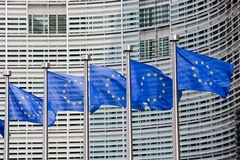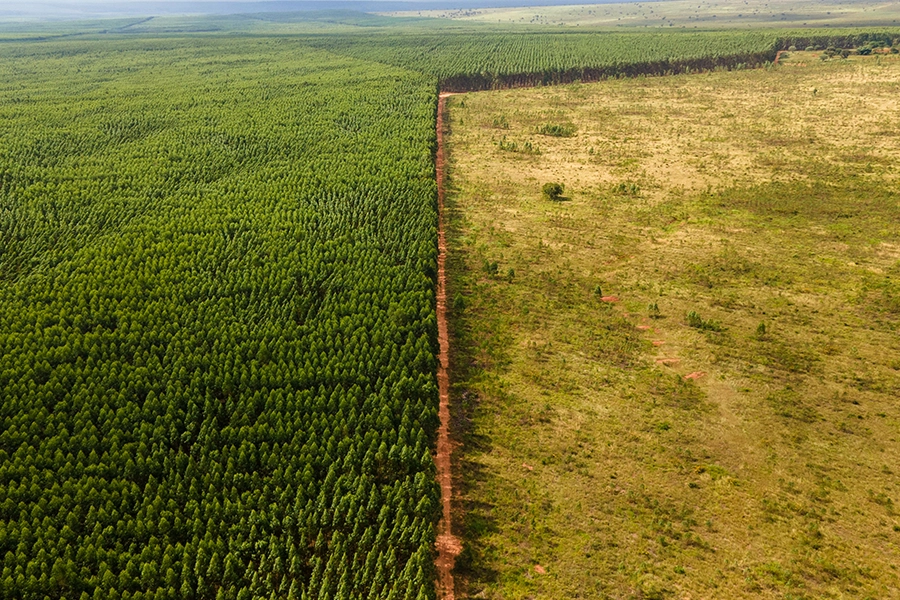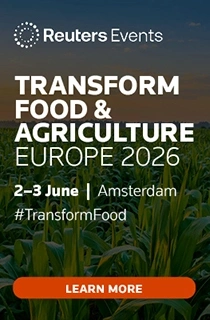
- Industry news
Industry news
- Category news
Category news
- Reports
- Key trends
- Multimedia
- Journal
- Events
- Suppliers
- Home
- Industry news
Industry news
- Category news
Category news
- Reports
- Key trends
- Multimedia
- Events
- Suppliers
Reaction to EU Commission’s EUDR proposal: Opinions divided
Key takeaways
- The EU Commission proposes upholding the December 2025 EUDR start date for larger companies, adding a six-month grace period, while delaying enforcement for smaller enterprises until the end of 2026.
- The proposal aims to simplify compliance by exempting smaller operators from submitting due diligence statements while addressing “IT system concerns” without fully delaying the regulation.
- Environmental groups criticize the move as weakening deforestation protections and yielding to lobbying pressure, while organizations like WRI view it as a pragmatic compromise preserving the regulation’s core goals.

The EU Commission’s latest Deforestation Regulation (EUDR) proposal, which came yesterday, and recommends not further delaying the start date for large actors while simplifying requirements for small enterprises and downstream operators, has been met with mixed reactions from industry stakeholders.
Environmental groups have accused the commission of diluting the regulation and caving to lobbying and political pressure, increasing the risk of deforestation and illegality in supply chains.
However, the World Resources Institute (WRI) suggests the proposal supports the EUDR’s underlying purpose to prevent commodities linked to deforestation — such as coffee, soy, cocoa, and beef — from entering the EU market, especially as it rejects the exemption of entire countries.

The commission recommends that the December 30, 2025, EUDR implementation date remain in place for large- and medium-sized companies, but with a six-month grace period for checks and enforcements due to “IT issues.”
The proposal also suggests that micro and small enterprises and downstream operators and traders should no longer be required to submit due diligence statements to support the EUDR IT system. For these actors, the EUDR’s enforcement would be delayed until December 30, 2026.
The European Parliament and Council need to formally adopt the commission’s proposal before the regulation can come into effect.
Reduced burdens, effective workarounds
WRI’s vice president and regional director for Europe, Stientje van Veldhoven, says the proposal creates a workaround to allow compliance with the EUDR to begin at the end of December 2025.
“While no tampering would have been preferable, this approach is far better than delaying enforcement another year or gutting the regulation, as some have called for,” she adds.
After the commission suggested in September delaying EUDR enforcement, citing “serious IT capacity concerns” that could prevent the compliance system from operating at scale, a group of major F&B companies, including Nestlé, Ferrero, and Mars Wrigley, wrote a letter to EU Commissioner Jessika Roswall urging it to reconsider.
The letter stated: The company signatories to this letter, together with their value chain partners – including smallholder farmers – have been actively preparing and investing in compliance with the current provisions of the EUDR, which we have consistently supported. These efforts have been made in good faith that the European legislative framework and timeline were reliable. We remain on track to achieve full compliance with the EUDR obligations by December 31, 2025.”
The commission’s u-turn on delaying EUDR enforcement by another year for larger companies will reward those businesses taking action to prepare for the regulation, explains van Veldhoven at WRI.
“The Commission appears focused on reducing burdens where the impact is small, while maintaining rigor where the stakes are high. An exemption only for micro enterprises — not including small enterprises — would have had less impact. Yet this package could strike a robust compromise: businesses that have already invested won’t see their efforts wasted, and those betting on future delays will not be rewarded,” she explains.
“The proposal exempts small companies from submitting due diligence declarations, while making sure their products aren’t sourced from land deforested or degraded after the cutoff date and comply with local laws. As such, the proposal addresses the issues with the IT system, but retains the EUDR’s core elements and maintains its predictability.” EU Commission upholds EUDR start for larger firms but delays small business enforcement to 2026 — a move praised as pragmatic by industry yet condemned by NGOs as weakening forest protections.
EU Commission upholds EUDR start for larger firms but delays small business enforcement to 2026 — a move praised as pragmatic by industry yet condemned by NGOs as weakening forest protections.
EU “simplification” risks weakening protections
The World Wide Fund for Nature (WWF), however, claims the EUDR’s “simplification” would actually undermine the regulation’s core intentions.
“Let’s be clear: proposing a partial delay and further changes is a deliberate choice — not an absolute necessity. It does not seem that the European Commission ever explored other options to fix any IT issues — it feels like the perfect scapegoat to water down the regulation,” says Anke Schulmeister-Oldenhove, senior forest policy officer at WWF’s European Policy Office.
“The commission may win a few political points, but the losers are clear: companies that have invested in deforestation-free supply chains, and forests that will continue vanishing at a breathtaking pace.”
WWF urges companies to maintain and develop their due diligence systems to achieve fully traceable, transparent, and deforestation-free supply chains despite the commission’s proposed amendments. It sees this commitment as essential to upholding the rights of Indigenous and local peoples and mitigating climate change and biodiversity destruction.
Likewise, Greenpeace suggests the commission “tried to blame its own IT services” before one month later “concluding that such a delay is not necessary for IT reasons, after all.” The NGO says the commission “took the opportunity to propose amendments that may weaken the legislation to please EU-based companies and forest owners.”
“The proposal shows where the obstacles to the application of the EU deforestation law really are — spoiler alert: not in the IT system. The commission caved in to lobbying and political pressure and agreed to exempt EU manufacturers, as well as the EU forestry and the agriculture sector, from reporting obligations,” says Andrea Carta, EU legal strategist at Greenpeace.
The commission’s latest EUDR proposal comes less than a month before the opening of the COP30 global climate conference in Brazil. The issue of forest protection will be central to discussions.









